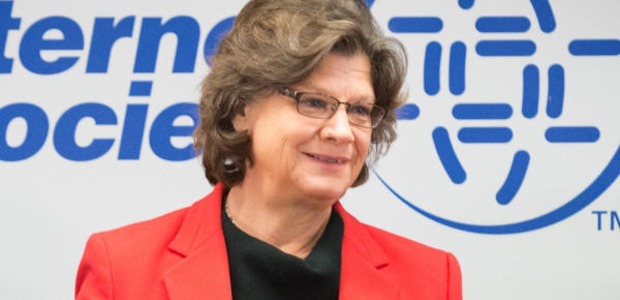advertisement
Closing the Gender Gap in Africa, Starts with the Internet
I am also asking others to join me in the Internet Society’s effort to “Shine the Light” on women who…

I am also asking others to join me in the Internet Society’s effort to “Shine the Light” on women who use the Internet to innovate and make a difference –in their families, in their communities and for themselves. Women around the world have made tremendous advances socially, economically and politically, but progress towards gender parity will be stunted if we do not increase the number of women who have access to the one technology that has transformed the lives of billions of people – the Internet.
Even here, the disparities are evident. Worldwide, there are 200 million fewer women than men online. In developed countries women and men have access to the Internet at close to the same rates, but in the developing world women are 25% less likely than men to have access, and the number jumps to 45% in regions such as Sub-Saharan Africa. And while almost one billion people in Africa have mobile phones, women are 23% less likely to own a mobile device.
This gender gap in the number of women with Internet access can be measured economically–according to the Broadband Commission Working Group every 10% increase in access to broadband translated to a 1.38% growth in gross domestic product– but equally important, it can be measured socially. Women who have Internet access are more likely to use it in their daily lives. They use their connections to access education, health care, government services and to organize their families and communities for social, economic and political empowerment.
advertisement
With access to the Internet, women in Kenya learning digital literacy skills can now take part in the online job market, and in India are creating micro enterprises using the Internet in fields like fishery and sustainable agriculture. The Internet is a tool in the hands of women that gives them power – to organize their village, start a business or change perceptions.
While we know there remains significant work to be done, my belief is that women are already empowered to make a difference and to bring about change. We need to highlight their accomplishments and achievements to they serve as a beacon for other women and girls.
There is a powerful community of women who are successfully using the Internet to create opportunities and change lives. Many of these women have faced personal and professional barriers, whether they are from a remote village in Uganda, or an executive for one of the largest technology companies in the world. I like to think of these women as digital trailblazers.
advertisement
Women such as Dorcas Muthoni, an entrepreneur and computer scientist in Kenya who started AfChix in 2004 to encourage girls and young women in Africa to take up careers in technology. Or Linda Kobusinge who attended an AfChix event last year in Kampala, Uganda and is now studying computer graphics design. Says Linda, “I wasn’t interested in the web or computers. But then my school was invited to a Girls in ICT Day, and women told us about their professions, how they were web developers and engineers, and they said someone can do a mobile app that can change the world. Maybe one day, I’ll do the same thing.”
We need to Shine the Light on these women and all women who are using the Internet to make an impact. Whether it’s adding content that is relevant to other women, encouraging and inspiring other women and girls who are just getting online, or creating and innovating – women have a central role in helping to build the Internet of Opportunity. So as we focus on achieving gender parity for women this International Women’s Day, let’s also celebrate the voice of women online and the many achievements they have made through the Internet. #Shinethelight
The Author: Kathy Brown is CEO, The Internet Society
advertisement
www.internetsociety.org